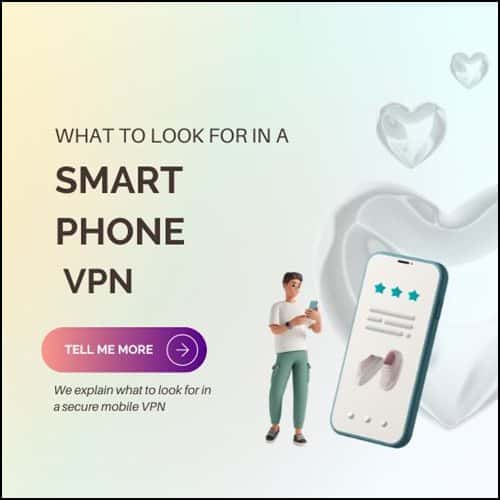
Here’s no doubt that VPN usage in the UK is one the rise, particularly among mobile users.
For example, some 52% of VPN users report installing a client on their iOS device, with virtual private networks arguably at their most effective when connected to public Wi-Fi networks.
But what are the advantages of using a VPN on your smartphone, and what should you look for in this type of technology? Let’s get into it!
Why You Need to Use a VPN on Your Smartphone
More than 58% of US citizens spend more than 30 minutes a day outside, while this trend is replicated through much of the western world.
Of course, younger demographics of working age (such as Millennials) spend even more time out of the home, which is just one of the reasons why smartphone penetration rates in regions like the UK continue to peak above 90%.
When using a mobile browser outside of the home, however, the chances are that you’ll have to connect to a public Wi-Fi network. This type of network is typically unsecured and may have minimal encryption, while it may also rely on outdated and vulnerable security protocols such as WPA2.
This creates numerous risks. For example, you may be vulnerable to hacking, doxxing and malicious malware attacks, while it’s also possible for network managers and Internet Service Providers (ISPs) to view your web traffic.
The latter can also engage in bandwidth throttling if you engage in data-hungry activities such as streaming or gaming, slowing down your device in order to safeguard overall network performance.
The good news is that a VPN for UK usage can tackle all of these issues. This is because a VPN creates a virtual and encrypted tunnel between your smartphone and a remote server, which establishes an additional layer of network protection and makes your data (and web traffic) indecipherable to third parties.
By connecting to your choice of remote servers operated by the client, you can also use a VPN to mask your IP address and real-time physical location.
This automatically minimises the risk of doxxing and makes you less vulnerable to malware attacks, allowing you to use your smartphone and mobile browsers freely and with far greater peace of mind.
What to Look for in a VPN for Your Smartphone
Now that we’ve made the case for VPN usage and the core benefits of this technology, the next step is to identify the best client on the market.
But what exactly should you look for in a VPN for your smartphone? Here are some of the key considerations:
- #1. Prioritise Paid vs Free VPNs: While free VPNs may appeal to your sense of frugality, free doesn’t always translate into optimal value. Often, free VPNs lack the type of robust encryption or range of features associated with paid alternatives, while they may also look to leverage your data as a way of generating income. More specifically, they may sell your personal and traffic data to third parties, potentially increasing the risk of practices such as identity theft over time.
- #2. The Deployment of Protocols: Protocols describe a number of different rules and frameworks for how VPNs treat your data. These can vary considerably, while VPN clients may utilise a combination of different protocols that are part of their package. Mobile users should ideally look for VPNs that use the OpenVPN protocol, and the recently launched WireGuard alternative that delivers the fastest connection speeds in the market.
- #3. The VPN’s Privacy Player: Virtually VPNs for desktop or mobile use claim to keep no data logs at all, but the chances are that this statement is slightly misleading. After all, the overwhelming majority of VPN clients maintain basic connection logs as a minimum service requirement, and this should be of minimal concern. However, less reputable VPNs may retain data pertaining to your browsing history and web traffic, and to avoid this, we’d recommend verifying your provider’s claims by reading through the relevant T&Cs.
The Bottom Line
So, there you have it; our brief guide to smartphone VPN usage and what you should look for when identifying and downloading software. The key thing is to prioritise reputable paid VPNs over free and often inadequate alternatives, while ensuring that you download the latest version of your software on the relevant operating system.
Leave a Reply
You must be logged in to post a comment.